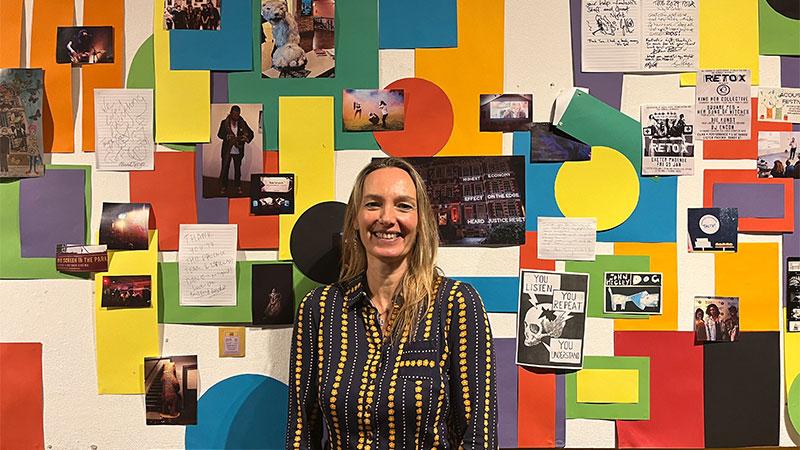Dr Tina Cartwright, Director of the Westminster Centre for Psychological Sciences and Course Leader for Health Psychology MSc at the University of Westminster, delivered an insightful talk at the Agile Rabbit event Making Menopause Matter. Her presentation explored the symptoms of menopause, strategies to support women’s wellbeing during this transition and advancements in research and global understanding.

Hosted by Agile Rabbit, a charity known for its inclusive events addressing significant societal issues, the session aimed to ignite curiosity and foster greater awareness around menopause. Dr Cartwright’s talk demystified perimenopause and menopause, emphasising how these stages manifest differently among women. She shared practical advice on recognising symptoms and managing them through techniques such as exercise, Cognitive Behavioural Therapy (CBT), yoga and cold-water swimming. She also discussed the importance of seeking support from friends, family, employers and healthcare professionals.
Menopause, which marks the end of menstruation due to hormonal changes has over 30 potential symptoms. These symptoms, which can vary widely in intensity, often cause uncertainty, particularly for those experiencing early menopause. While the average age for menopause in the UK is 51, perimenopausal symptoms can begin up to a decade earlier.

Dr Cartwright’s research focuses on managing long-term conditions and understanding patient experiences, with a particular interest in factors that affect wellbeing. Her current projects examine the impact of yoga and other mind-body practices on health and wellbeing in educational, healthcare and community settings.
Dr Cartwright said: “While menopause is now more openly discussed, many women still feel isolated and struggle to access the support they need. Through this and other public talks, my goal is to deepen understanding of the wide ranging effects hormonal changes can have on the body and to empower women with strategies to navigate this transition with confidence. By equipping women with the knowledge and tools to take control, they can better advocate for appropriate support whether in the workplace or in healthcare. It was fantastic to have such an engaged audience, with plenty of questions and sharing of personal experiences. The session will be available as a podcast in the new year.
"If you are member of staff going through the menopause, you might like to join the Women of Westminster Menopause group, which aims to connect colleagues for information and peer support on menopause issues. You can join by emailing: [email protected]."
This event directly contributes to the United Nations Sustainable Development Goals (SDG) 3: Good Health and Wellbeing and 4: Quality Education. Since 2019, the University of Westminster has used the SDGs holistically to frame strategic decisions to help students and colleagues fulfil their potential and contribute to a more sustainable, equitable and healthier society.
Learn more about the Westminster Centre for Psychological Sciences and its impactful work in advancing health psychology and wellbeing.


